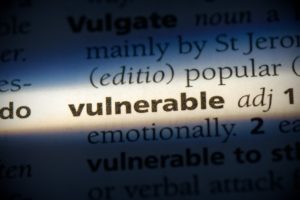07.24.19
Redefining success through the lens of vulnerability
Karl R. LaPan, President & CEO, The NIIC

In the business world, success is most often measured by “hardcore” KPI’s (key performance indicators) – measures including, but not limited to EBITDA growth, quarterly earnings against prior periods, top-line organic growth, the mix of sales by channel or partner or orders backlog.
However, this performance-driven mindset can come with real costs to mental and physical health. Entrepreneurs especially are feeling the pinch, and the mental health crisis is making headlines. According to TechCrunch, entrepreneurs are 50 percent more likely to report having a mental health condition, with some specific requirements being incredibly prevalent amongst founders like anxiety, depression, and addictions.
There has to be a better way. What if instead of “pushing through,” we were more honest with ourselves about our abilities and needs? We might find we enjoy our work and personal lives more when practicing empathy and vulnerability.
You might start by taking inventory of all facets of life—Matthew Kelly Dream Manager program assesses four key dimensions: intellectual, physical, emotional/relationships, and spiritual well-being. Everyone’s wheel of life will look different, but for many, its family, marriage, health, leisure, and business. For you, today, which areas are robust and which ones might need some attention? Similarly, we also must acknowledge that sometimes life will feel “off-balance” and we must tell ourselves that it’s a season of life and this too shall pass.
Speaking of feelings, it’s human nature to want to crush that list of milestones and deliverables, but there’s a danger in defining our self-worth by our productivity alone. Again, it’s helpful to check-in. How are you feeling? Sometimes slowing down is the best thing we can do for ourselves. Everyone would be well served to regularly ask such questions like the following ones. What does success look like to you? What things are you excited about daily? What are you most scared of and need to lean into for your personal growth?
Furthermore, business builders need to be at home by showing up authentically at work, regardless of their emotional state. Brad Feld, a managing director of the Foundry Group, spoke to the emotional weight on entrepreneurship in an interview with Inc. Magazine.“When you are willing to be emotionally honest, he says, you can connect more deeply with the people around you.” When you deny yourself, and you deny what you’re about, people can see through that,” says Feld. “Willingness to be vulnerable is very powerful for a leader.” I would add not just for leaders, but for anyone striving to become a “better version of themselves.”
While some fear the consequences of practicing this vulnerability, author and speaker Brené Brown say it’s part and parcel of blazing your trail. What many eschew or even look down on, Brown insists there is a key to success, real intimacy, and happiness, at home and work.
“Entrepreneurship is vulnerable by definition,” she told Foundr magazine. “The definition of vulnerability is uncertainty, risk, and emotional exposure. If you are not experiencing uncertainty, risk, and emotional exposure, you are not an entrepreneur.” Brown reminds us that vulnerability is not about being weak, winning, losing or being insecure. Vulnerability is about courage and strength.
So, what can you do today to lean into your vulnerability? Who makes you better, and are you surrounding yourself and your business with these people?

